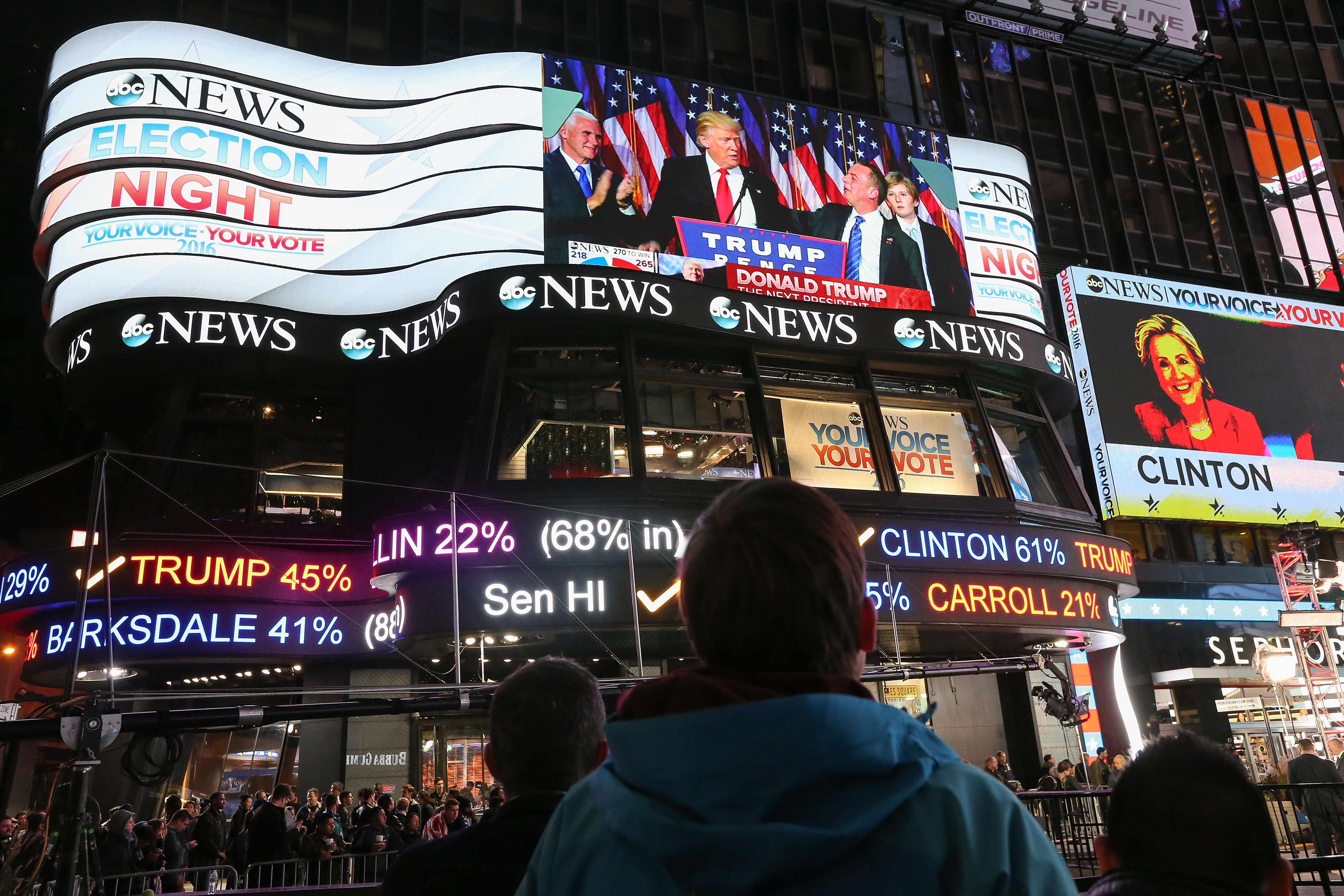
Michael Reaves/Getty Images
Political predictions are always precarious, especially in this modern media age when the news cycle is now approximately 47 minutes long. This is particularly the case in the Trump Era where the president has consistently defied conventional wisdom and the normal rules of political engagement.
With that said, as 2020 fast approaches, I am compelled to try to forecast how what, at least on paper, is likely to be our craziest election campaign in modern history, will go down. For context, until 2016 (when I warned early on that Trump could be the GOP nominee, but did not believe he could win the presidency) I was actually pretty good at this exercise.
My basic view of the race for the Democratic nomination is that it appears very much like the 2012 GOP version of their battle to pick a challenger to a controversial and charismatic incumbent president coming off of a disastrous midterm election. The biggest differences being that Barack Obama’s approval numbers were more favorable than Trump’s, but the economy is perceived to be better now.
Similar to Republicans in 2012, Democrats have an experienced and well-known frontrunner who has a group of flawed rivals nipping at his heels. In 2012, Mitt Romney ended up winning the GOP nomination, though his journey to get there was far more precarious that most people remember. Joe Biden, who has comparable — and perhaps even more pronounced — vulnerabilities to what Romney had, will need some luck to reach the finish line.
Reminiscent of Romney, Biden is unlikely to win Iowa, but unlike him does not have a natural firewall in New Hampshire. It is likely that South Bend Mayor Pete Buttigieg will win a cluttered contest in Iowa, and that New Hampshire will be a four-way struggle between him, Biden, Bernie Sanders, and Elizabeth Warren.
From there, the race will come down to how quickly and decisively the field gets whittled down. In the past, only two or three candidates ever really survived the first two contests, but thanks to the Internet and cable news television, it is far easier for candidates to remain viable without winning either Iowa or New Hampshire (especially for a “cult” candidate like Sanders).
The biggest unknown at this point is whether it is true that Biden is more well suited for a long four-way battle, because his 35% of the Democratic national base can win four-way primaries. Or, is he better off going head-to-head with one candidate early on so that he can secure the nomination with minimal bleeding and party division (this is the plot line Trump fears most, which is exactly why the entire Ukrainian scandal started).
My belief is that Biden needs Buttigieg, Sanders, and Warren to all stay in and be sustainable, but without anyone of the them catching fire the way that Obama did to overtake Hillary Clinton in 2008. Since Buttigieg is the only candidate with the ingredients to support such an early explosion, it may be critical for Biden, counter intuitively, for Sanders and Warren to do well but not great in both Iowa and New Hampshire. This way, gravity maintains its hold on Buttigieg, who, because of his youth and outsider status, would be the greatest threat to beat Biden one-on-one (assuming he can eventually make some progress with the black vote).
If Buttigieg is held in check, then Biden winning Nevada and South Carolina would put him on a clear, though likely long and perilous, path to the nomination. While far from certain, this is still the most likely outcome.
To be clear, it will not be easy for Biden. The news media, especially the progressive press, will be very incentivized to ambush Biden at every opportunity, and given his penchant for making significant verbal gaffes, and his advanced age, they will have plenty of chances to go after him. It is easy to see a scenario where the nomination comes down to Obama (and, to a lesser degree, Hillary) effectively pushing Democrats, no matter how subtly, towards either Biden or Buttigieg.
Given all of this, as we start 2020, I put the chances of Biden winning the nomination at 50%, Buttigieg at 25%, Warren at 15%, Sanders at 5%, with a 5% chance someone else emerges out of nowhere, or via a brokered convention.
A Biden vs Trump general election would essentially be a repeat of 2016, only with Biden positioned to out-perform Hillary in the key states of Wisconsin, Michigan, and Pennsylvania, but with Trump now having the advantage of incumbency and an economy which is perceived to be excellent. In other words, barring a legitimate “black swan” event (I am sure there will be many dramatic plot twists which will result in very little polling movement), Biden will win the popular vote fairly easily, but the Electoral College tally will be close, possibly extremely close.
My guess is that Biden (with either Buttigieg, Amy Klobuchar, or Kamala Harris as his VP nominee) would win those three states, with the rest of the map staying largely the same as it was in 2016. This would give Biden a very narrow 279-259 victory.
Under this scenario, the biggest political story of 2020 will not be the general election itself, but rather its potentially extremely tumultuous aftermath. For, if any of those three key states are even remotely close (Trump winning any one of them would mean either he is victorious, or, in the case of Wisconsin, likely ties), Trump will surely not concede, and no one in his now co-opted party or state-run media will force him to so do.
This is what should be referred to the “nightmare scenario.” One that our Founders never fully envisioned, and for which our current political and media apparatus is dreadfully unprepared.
But I am sure there is nothing to really worry about, and we will get through it all just fine. Happy New Year!
John Ziegler is a senior columnist for Mediaite. He hosts a weekly podcast focusing on news media issues and is documentary filmmaker. You can follow him on Twitter at @ZigManFreud or email him at johnz@mediaite.com
This is an opinion piece. The views expressed in this article are those of just the author.






